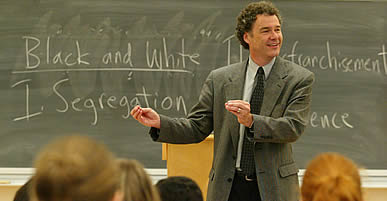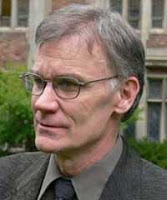 Interesting account of the Sesquicentennial kickoff in the Chronicle of Higher Education by a slavery historian from Yale.
Interesting account of the Sesquicentennial kickoff in the Chronicle of Higher Education by a slavery historian from Yale.For a motif in his article, David Blight (right), despite his pedigree, sophomorically grabs onto so-c
 alled "Lost Cause history" and tells how he would like to stamp out this imaginary school of thought and re-educate its purported proponents. Deleriously waving this red herring, handed to him by respected Centennialists, he completely misses the up-to-date, historiographic struggle occurring under his very nose in realtime.
alled "Lost Cause history" and tells how he would like to stamp out this imaginary school of thought and re-educate its purported proponents. Deleriously waving this red herring, handed to him by respected Centennialists, he completely misses the up-to-date, historiographic struggle occurring under his very nose in realtime.Agitating against "Lost Cause" historiography invites one into a fantasy struggle against a pretend school of thought invented out of scraps of writing and speech and then built into a menace. Centennialism dresses up as Don Quixote to tilt against this windmill while its real foes line up for hard jousting.
Edward Ayers' symposium, "America on the Eve of the Civil War," did something dramatic to grab the attention of the Centennialist's inevitability-of-war advocates.
Ayers immersed attendees in his system of "deep contingency" analysis, then he enforced that system throughout the event (apparently with rigor). The "inevitables" - if any attended - had to evaluate and discuss events as contingent in origin with multiple possible outcomes. Can you imagine the discomfort of the "inevitables" at this event?
Inevitablility vs. Contingency. How do you split that difference? How do you pretend the difference does not exist?
Blight's solution was to paper over the stark differences "deep contingency" bares: let's all unite to attack the French in Mexico - er, "Lost Cause History."
Nothing to see here folks. Keep moving.



